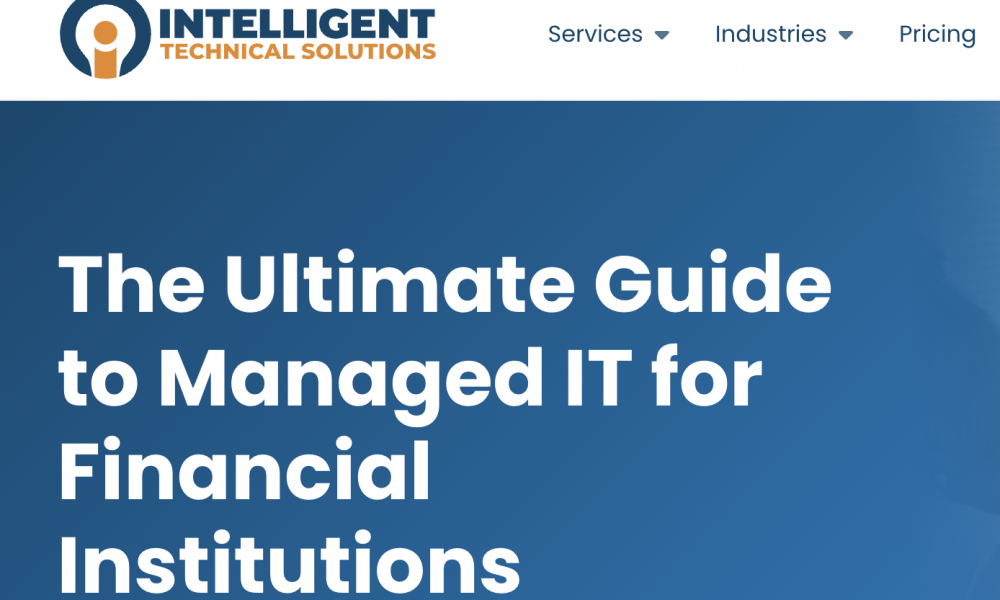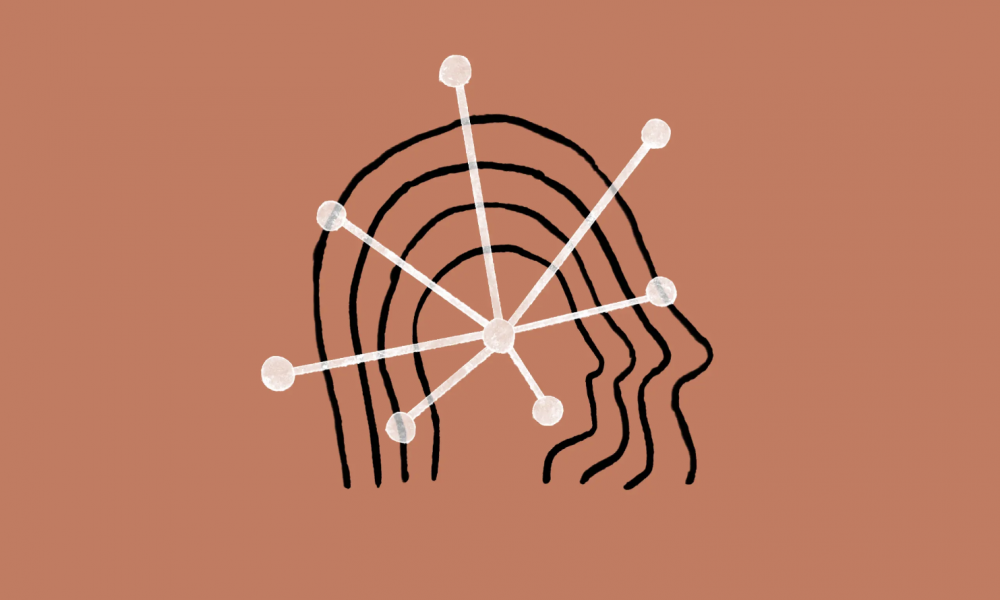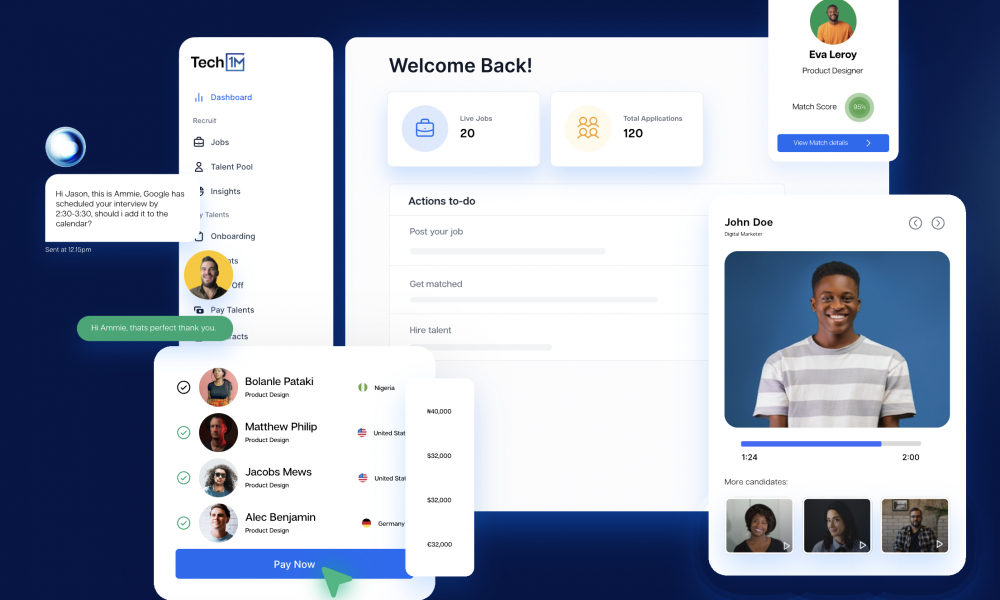Category: Startup
Google Bard now has the capability to seamlessly access Gmail, Docs, Maps, and other services
Today, Google unveiled a significant upgrade to its Bard conversational AI system, broadening its functionality to seamlessly interact with Google’s most popular productivity apps and services. These improvements are designed to enhance Bard’s utility in daily tasks while also addressing concerns regarding its accuracy.
Effective immediately, Bard gains the ability to directly tap into information from apps such as Gmail, Docs, Maps, Flights, and YouTube. This empowers it to deliver more comprehensive and personalized responses during conversations. For instance, when planning a trip, Bard can now autonomously retrieve pertinent dates, flight details, directions, and sightseeing recommendations, all within a single conversation.
This upgrade follows Bard’s somewhat lackluster public debut in March, which exposed factual inaccuracies in many of its responses. Google aims to bolster Bard’s accuracy by integrating it with its search engine. Users now have the option to fact-check Bard’s responses against web information indexed by clicking a “Google it” button within the chat.
Google emphasizes its unwavering commitment to safeguarding users’ personal information with this update. Those who choose to utilize the Workspace extensions can rest assured that their content from Gmail, Docs, and Drive remains confidential, unseen by human reviewers, not utilized for ad targeting by Bard, nor employed in training the Bard model. Users retain full control over their privacy settings.
Additionally, Google has simplified the process of building upon others’ interactions with Bard. From today onwards, if someone shares a Bard chat via a public link, the recipient can continue the conversation, pose further inquiries to Bard about the topic, or use it as a starting point for their own discussions.
Furthermore, Google extends access to existing English language features, including the ability to upload images using Lens, receive Search images in responses, and adapt Bard’s responses to over 40 languages.
Although Bard’s capabilities are still somewhat limited, these new features hint at a future where AI assistants seamlessly combine conversational skills with email and document services to enhance productivity. As Bard continues to advance, it may integrate further with other Google offerings, such as calendar, photos, and analytics.
The rollout of these Bard upgrades begins today, with Google planning to introduce additional languages and integrations in the months ahead, all while upholding responsible technology refinement.
Seattle: An Overlooked AI Hub in the New Tech Economy?
Seattle’s tech leaders claim their city is a hub for AI innovation, but recent assessments of promising AI startups paint a different picture:
- Forbes’ AI 50 list did not feature any Seattle startups, leading to an Axios headline stating, “AI boom’s primary beneficiaries reside in just four states,” with Washington notably absent.
- Bloomberg’s article highlighting “10 AI Companies to Watch Right Now” did not include any Seattle-based companies.
- Insider’s “34 most promising AI startups of 2023” featured only one from Seattle.
- In the latest Y Combinator cohort, only three out of 138 AI-related startups originated from Seattle.
While there were two Seattle companies on the IVP Enterprise AI 55 list, they were overshadowed by Bay Area competitors.
Salesforce CEO Marc Benioff proclaimed, “San Francisco & California serve as the headquarters for AI companies and the talent pool,” referencing the IVP list.
Seattle’s modest presence and limited recognition beyond its borders could hinder its ability to attract leading entrepreneurs and AI executives. This poses potential challenges as the AI industry, fueled by advancements in generative AI, is expected to yield trillions of dollars in economic impact.
Matt McIlwain, managing director at Seattle VC firm Madrona, emphasized that Seattle should be considered “one of the premier centers of excellence for AI.” However, he acknowledged, “sometimes we are too understated.”
Perhaps the city’s AI innovators are quietly at work in Seattle, a place not known for self-promotion.
Ultimately, the perception of Seattle as an AI hub could play a pivotal role in attracting AI talent and bolstering the city’s innovation ecosystem. As Kirby Winfield, founding general partner at Seattle venture firm Ascend.vc, noted, “Perception certainly matters in attracting talent and other resources to a region.”
Heather Redman, managing partner at Seattle VC firm Flying Fish, urged the city to address its underselling of its AI capabilities and prioritize collaborations between the tech and non-tech sectors. She emphasized the transformative potential of AI across various industries and aspects of society.
Seattle’s AI clout

Many acknowledge that Silicon Valley serves as the focal point for AI startups.
According to PitchBook, AI and machine learning companies based in San Francisco raised an impressive $12.8 billion across 219 deals through August, putting their performance in a league of its own. In contrast, Seattle-based AI and machine learning firms secured a modest $170 million in funding across 24 deals during the same period.
Nevertheless, Seattle claims the second spot nationally in terms of AI talent density, a metric that gauges the number of professionals specializing in AI, according to data from SeekOut, a Seattle-based recruiting platform.
Vivek Ramaswami, a partner at Madrona in San Francisco, commented, “Ultimately, what matters most for these startups is the ability to attract exceptional talent and deliver outstanding products. I believe that Seattle stands out among most other cities outside of the Bay Area in this regard.”
Seattle boasts an impressive tech landscape, with cloud computing giants Microsoft and Amazon headquartered in the region, offering vital tools and services that drive AI and machine learning applications. Griffin noted, “The investments made by these two companies in AI are massive by any standard.”
In addition to Microsoft and Amazon, Meta, Google, and Apple maintain substantial engineering centers in the Seattle area, employing thousands of top AI researchers and engineers.
Seattle’s allure extends to academia, attracting prominent AI researchers to the University of Washington’s computer science school and the Allen Institute for AI (AI2). Notably, the AI2 Incubator, which recently secured $30 million for its latest fund, has spawned over 20 AI startups, some of which were later acquired by tech giants like Apple and Baidu.
Seattle’s AI community also received recognition on Time’s recent list of 100 leading AI influencers, with seven individuals linked to the city, including Microsoft’s Kalika Bali, Kate Crawford, Kevin Scott, and Jaime Teevan, sci-fi author Ted Chiang, and UW professors Emily Bender and Yejin Choi.
Ed Lazowska, a longtime computer science professor at the University of Washington, proudly declared, “We are unquestionably an AI hub, particularly if we define it by ‘AI expertise’ rather than just ‘buzzworthy startups’.”
Seattle boasts a thriving AI startup scene, with a multitude of rapidly expanding ventures making their mark. Notable inclusions in this burgeoning landscape, as highlighted in lists such as NFX’s AI Hot 75 and the IA40, encompass a diverse array of innovators:
- Lexion, a legal tech startup.
- WellSaid Labs, specializing in speech recognition technology.
- Xembly, a company pioneering the concept of AI ‘chief of staff.’
- Fixie, a trailblazing large language model startup.
- OctoML, a forward-thinking machine learning enterprise.
- CLIPr, a cutting-edge video analysis platform.
Moreover, Seattle’s AI-focused startups extend beyond these select few, with the GeekWire 200 ranking providing additional insights into the region’s vibrant private sector:
- Icertis
- Highspot
- Textio
- Defined.AI
- WhyLabs
In the summer months, several Seattle-area AI startups, including A-Alpha Bio, DropZone AI, and Protect AI, secured substantial capital investments, further fueling the city’s AI innovation ecosystem.
Ramaswami, an advocate for Seattle’s AI prominence, emphasized that the city’s continued elevation as an ‘AI hub’ hinges on both startups and established companies expanding, making astute hires, and delivering top-tier AI products to the market.
McIlwain stressed the importance of effective storytelling for industry giants like Amazon, asserting that it’s crucial for everyone to actively share and amplify Seattle’s compelling AI narrative.
Launch of MSP Guide: Offering Managed IT Services Tailored for Banks and Financial Institutions
Intelligent Technical Solutions (ITS) has unveiled its latest guide, shedding light on the potential advantages of opting for managed IT services for organizations operating within the financial sector. This guide underscores the viability of managed IT solutions, emphasizing their cost-effectiveness, adaptability, and enhanced security, making them a compelling choice for those aiming to streamline operations, boost efficiency, or establish robust tech infrastructure resilient against cybersecurity threats.
While primarily tailored for decision-makers within the financial sector, the ITS guide also extends its reach to educate other stakeholders interested in delving into the world of managed IT services. It offers a succinct overview of managed IT, encompassing the wide array of solutions proffered by managed IT service providers (MSPs) and critical considerations to ponder before engaging with any MSP.
The guide elaborates on the diverse spectrum of IT services that can be outsourced to an MSP, encompassing facets such as communication management, data analytics, managed security, cloud-based services, and VoIP-managed solutions. According to the guide, these services are adaptable, capable of scaling up or down in accordance with the unique requirements of clients.
Managed IT solutions present a distinct advantage for banks and financial institutions, granting them access to a provider’s comprehensive cybersecurity expertise and infrastructure, all without the need for acquisition, operation, or maintenance.
Addressing a pivotal concern, ITS has outlined a four-step framework in the guide to assist financial businesses in evaluating potential MSP partners and their ability to deliver on their commitments.
About Intelligent Technical Solutions
Intelligent Technical Solutions is dedicated to assisting clients in effectively managing their technology, providing rapid responses and support to minimize downtime. The company boasts numerous industry accolades, including the prestigious 2023 CRN Security 100 Award, recognizing it as a top MSP specializing in cloud-based security services.
A spokesperson from the company commented, “At ITS, we empower countless clients to make informed decisions regarding their technology. If you are interested in assessing the current state of your financial business and exploring how we can assist you in finding a suitable IT solution, we invite you to schedule a complimentary network assessment with us.”
The latest contender to ChatGPT, known as Claude 2, has officially entered the open beta testing phase
On Tuesday, Anthropic unveiled Claude 2, a substantial language model (LLM) akin to ChatGPT, proficient in coding, text analysis, and composition creation. In contrast to the initial Claude version launched in March, users can now explore Claude 2 freely on a new beta website. Additionally, it is accessible as a commercial API for developers.
Anthropic asserts that Claude is engineered to emulate conversations with a supportive colleague or a personal assistant. The new iteration incorporates valuable feedback from users of the preceding model, emphasizing its ease of interaction, clear articulation of reasoning, reduced propensity for generating harmful content, and an extended memory capacity.
Anthropic asserts that Claude 2 showcases notable advancements in three crucial domains: coding, mathematics, and reasoning. They note, “Our latest model achieved a 76.5% score on the multiple-choice section of the Bar exam, a marked improvement from Claude 1.3’s 73.0%.” Furthermore, when compared to college students applying for graduate programs, Claude 2’s performance places it in the top 10% on the GRE reading and writing examinations, with a comparable standing to the median applicant in quantitative reasoning.
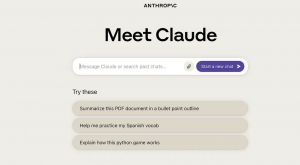
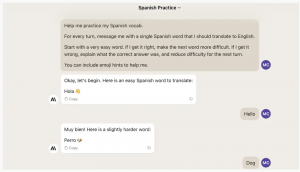
Claude 2 boasts several significant improvements, including an expanded input and output capacity. As we’ve previously discussed, Anthropic has conducted experiments enabling the processing of prompts containing up to 100,000 tokens, allowing the AI model to analyze extensive documents, such as technical manuals or entire books. This extended capability also applies to the length of its generated content, facilitating the creation of longer documents.
Regarding its coding prowess, Claude 2 has exhibited a notable increase in proficiency. It achieved a higher score on the Codex HumanEval, a Python programming assessment, elevating from 56 percent to an impressive 71.2 percent. Similarly, in the GSM8k test, which assesses grade-school math problems, Claude 2 improved its performance from 85.2 to 88 percent.
A primary focus for Anthropic has been refining its language model to reduce the likelihood of generating “harmful” or “offensive” outputs in response to specific prompts, although quantifying these qualities remains subjective and challenging. An internal red-teaming evaluation revealed that “Claude 2 delivered responses that were twice as benign as Claude 1.3.”
Claude 2 is now accessible to the general public in the US and UK, serving individual users and businesses through its API. Anthropic has reported that companies like Jasper, an AI writing platform, and Source graph, a code navigation tool, have already integrated Claude 2 into their operations.
It’s crucial to keep in mind that while AI models like Claude 2 are proficient at analyzing lengthy and intricate content, Anthropic acknowledges their limitations. After all, language models occasionally generate information without factual basis. Therefore, it’s advisable not to rely on them as authoritative references but rather to utilize them for processing data you provide, especially if you possess prior knowledge of the subject matter and can verify the results.
Anthropic emphasizes that “AI assistants are most beneficial in everyday scenarios, such as summarizing or organizing information,” and cautions against their use in situations involving physical or mental health and well-being.
Tech1M Marks First Anniversary: Revolutionising the Global Hiring Landscape with Advanced AI Solutions
Tech1M, an AI-driven global hiring platform co-founded by Tommie Edwards (CEO) and Damilola Ogunmoye (CTO) in April 2022, celebrates its first anniversary, having made remarkable strides in the talent acquisition sector. Initially conceived as an edutech platform to develop one million tech talents through boot camps, mentorships, and work placements, Tech1M has since evolved into a powerful global hiring platform. The platform received over 5,000 applications from global talents at its outset and sponsored 600 candidates for training in various tech domains.
Leveraging its AI algorithm and video technology, Tech1M sources and matches talents for hiring managers, while also streamlining the hiring, onboarding, payment, and management processes. The platform ensures compliant hiring across 50+ countries while simplifying complex tasks related to compliance, taxes, benefits, and global remittance.
Tech1M has garnered accolades such as nominations for the Black Tech Achievement Awards (BTA Awards 2023) and the Great British Entrepreneurs Awards (GBEA 2022). Furthermore, Tech1M’s recent acceptance into the prestigious Techstars NYC, powered by JP Morgan accelerator program, highlights the company’s innovative vision and growth potential. CEO Tommie Edwards emphasizes Tech1M’s goal of streamlining job hunting and enhancing job satisfaction for over 800 million talents worldwide while providing hiring managers with a 4X better hiring experience. By integrating intelligent matching algorithms and an HR software suite, the platform offers businesses a seamless solution for global talent acquisition and management, complete with access to learning and mental well-being platforms.
With an eye on the future, Tech1M aims to disrupt the global workplace by simplifying the talent recruitment and retention process for hiring managers, while adhering to ESG principles.
About Tech1M
Tech1M is an intelligent hiring platform designed to source, match, hire, pay, and manage global talents for businesses worldwide. Founded in 2022, Tech1M is committed to helping companies of all sizes hire smarter and grow faster. For more information, visit https://tech1m.com.



